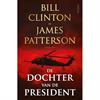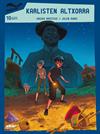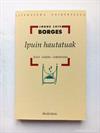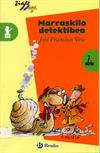
ALL RIVERS RUN TO THE SEA: MEMOIRS / Tutti i fiumi vanno al mare. Memorie.
Registered by kinkazzo on 3/29/2003
1 journaler for this copy...
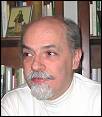 An Auschwitz survivor, just like Primo Levi (ref. my registrations of the latter's books), here he writes about his life... a must.
An Auschwitz survivor, just like Primo Levi (ref. my registrations of the latter's books), here he writes about his life... a must.A REVIEW FROM PUBLISHERS WEEKLY:
Wiesel's immensely moving, unforgettable memoir has the searing intensity of his novels and autobiographical tales. Before his family was arrested by Nazis in their Romanian village and transported by cattle car to Auschwitz in 1944, the devout, studious future Nobel Peace laureate had plunged into Jewish mysticism, hoping that his Kabbalistic prayers and formulas might ward off impending tragedy. In the concentration camps, he came to know his formerly aloof and deeply loved father, Shlomo, a rabbi, whose death in Buchenwald in 1945 left Wiesel, then 16, numb. Living in a French orphanage, he learned of the deaths of his mother and younger sister, and was reunited with the two sisters who survived. Wiesel, who gradually recovered his religious fervor, wrestles with the problem of having faith in the post-Holocaust era.

As a Paris-based journalist aiding the Jewish resistance movement in Palestine, he discovered his calling?to testify to Nazi genocide, to justify his own survival. Moving to New York in the mid-1950s as correspondent for an Israeli paper, he covered civil rights struggles, the Eichmann trial in Israel and the 1967 Six Day War, befriended Golda Meir and David Ben-Gurion and supported persecuted Soviet Jews. His ascetic bachelor existence ended when he fell in love with and married Marion in 1969. He writes also of his formative friendships with Yiddish poet/thinker Abraham Yeoshua Heschel, Talmudic scholars Gershom Scholem and Saul Leiberman and itinerant mystic rabbi Mordechai Rosenbaum ("Shushani"). This haunting, impassioned book will make you cry yet, somehow, leave you renewed, with a cautious hope for humanity's future.
For a more exhaustive appraisal of Elie Wiesel and his work, please refer to my previous registration of his NIGHT, thanks.
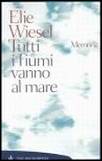 Un'autobiografia importante, importante per la memoria, per ricordarsi delle atrocità di cui l'uomo è capace, ma anche della forza interiore che può scaturire dall'anima di un uomo meraviglioso. Questo libro, insieme al suo seguito (q.v.), sono da leggere con lentezza e attenzione...
Un'autobiografia importante, importante per la memoria, per ricordarsi delle atrocità di cui l'uomo è capace, ma anche della forza interiore che può scaturire dall'anima di un uomo meraviglioso. Questo libro, insieme al suo seguito (q.v.), sono da leggere con lentezza e attenzione...Contenuto:
"Ricordarsi, che cosa vuol dire? Far rivivere un passato, illuminare volti e avvenimenti di una luce bianca e nera, dire no alla sabbia che ricopre le parole, dire no all'oblio, alla morte." Ecco perché, a sessantacinque anni, Elie Wiesel decide di scrivere le sue mernorie, di ripercorrere la sua vita, dall'infanzia felice a Sighet, piccola città dei Carpazi, dall'orrore dei campi di sterminio dove ha lasciato il padre, la madre, la sorellina dai capelli d'oro e di sole, alla sua sopravvivenza, come lui la chiama, prima in Francia, poi in giro per il mondo, infine negli Stati Uniti. Una sopravvivenza in cui grazie anche al mestiere di giornallista assiste ai grandi avvenimenti degli ultimi trent'anni, conosce personaggi importanti e capi di stato, ha amici come Primo Levi e François Mauriac, incorre in curiose avventure. Autore di numerosi romanzi pubblicati in Italia, difensore delle vittime, dei sopravvissuti, degli oppressi, premio Nobel per la pace, Elie Wiesel ci dimostra come, pur senza mai dimenticare, pur con ferite irrimarginabili, pur continuando a lottare tra dubbio e fede, si possa ancora guardare avanti, si possa credere nell'amicizia, nell'amore, nella pace. In una parola, nell'uomo.
BOMPIANI, 2002.
